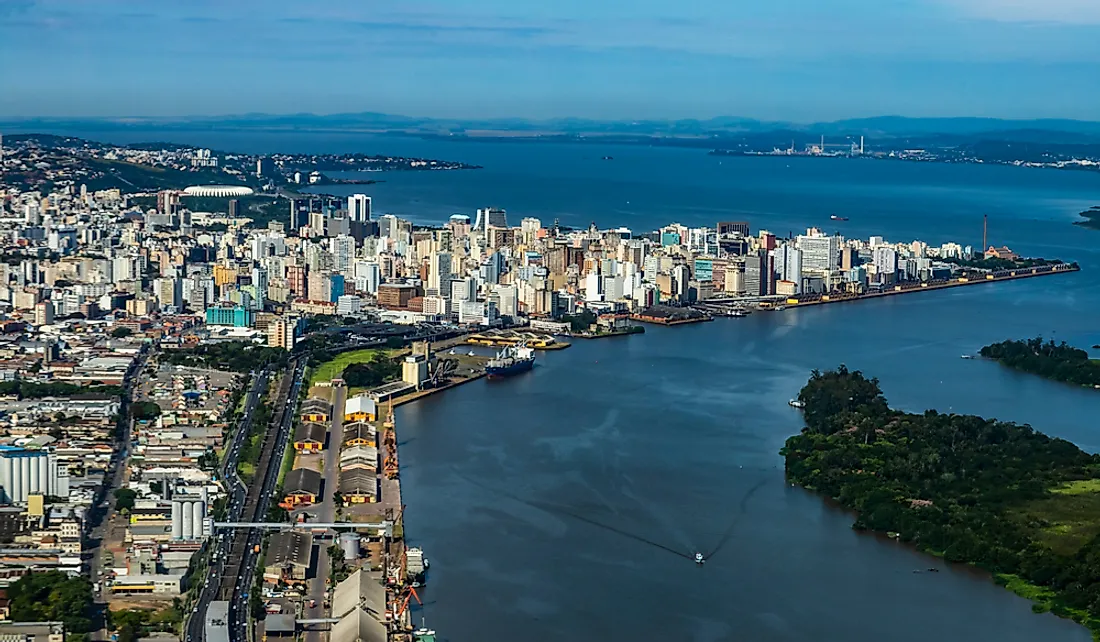Porto Alegre - The Capital Of The Rio Grande do Sul State Of Brazil

Rio Grande do Sul is a state in southern Brazil. With an area of 291,748 km2 and an estimated population of 11,286,500, it is the 9th most extensive and 5th most populous state in Brazil. Additionally, Rio Grande do Sul has the highest life expectancy and is regarded as one of Brazil's safest states. First inhabited by the Guarani people, the state features a gaucho culture and has been influenced by migrants from Germany and Italy. Porto Alegre is the state capital and largest city in Rio Grande do Sul.
Capital of Rio Grande do Sul: Porto Alegre
Porto Alegre occupies an area of 496.82 km2 and is situated at an elevation of 10 m above sea level. Porto Alegre is located on the eastern bank of the Guaíba River, near the convergence of five rivers that form the Lagoon of the Ducks (Lagoa dos Patos), which is large enough to accommodate the navigation of large ships. Porto Alegre is located at the northern end of the lagoon and experiences a humid subtropical climate.
Demographics of Porto Alegre
Porto Alegre has an estimated population of 1,481,019, ranking as the tenth most populous city in Brazil. The city's population includes the following population groups: White/Caucasian (79.2%); Black (10.2%); Pardo or mixed-race (10%); Asian (0.3%); and indigenous Brazilian (0.2%). The settlement was colonized by Portugal and had a large slave population during the 18th century. In 1824, migrants from Germany were the first non-Portuguese Europeans to settle in Porto Alegre. Since then, several waves of immigration from across the world has made Porto Alegre a multicultural city with a cosmopolitan atmosphere.
History of Porto Alegre
Porto Alegre was first established as a small village in 1752 under the name Porto de Viamão by a group of 60 married couples from Portugal's Azores Islands. However, the settlement was not officially founded until March 26, 1772. A year later, Porto Alegre was made the provincial capital, and over time, especially since the 19th century, immigrants from across the world have arrived in Porto Alegre in search of a better life. The city has endured various wars, including the Farrapos War, but continued to develop. Porto Alegre is the birthplace of many internationally renowned Brazilian writers, politicians, and artists.
Economy of Porto Alegre
In addition to the state capital, Porto Alegre is one of the country’s leading centers of commerce and industry. The city is surrounded by vast stretches of fertile agricultural and pastoral land whose products are exported. Some of the top exports from Porto Alegre include rice, soybeans, beef, and leather. Industries like meat-packing, leather tanning, metallurgic goods, pharmaceuticals, beer, and chemicals are also active in the city. Porto Alegre is home to many large businesses, malls, and some of the best hospitals in Latin America. The city has developed the Electronics Technology Center to help stimulate research and technology. Porto Alegre is also a hub of education and finance.











